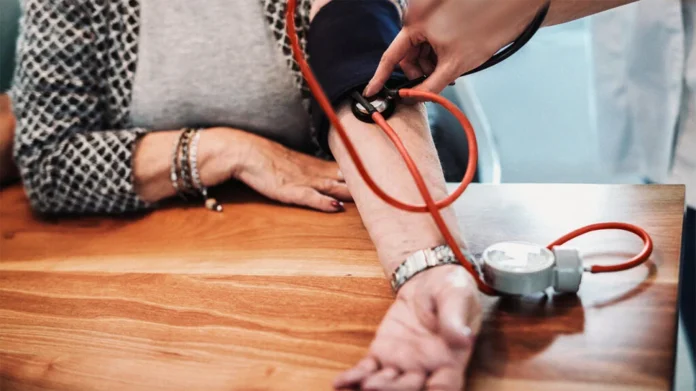Hypertensive Heart Disease refers to heart problems that occur as a result of high blood pressure (hypertension). Hypertension increases the workload of the heart, which can lead to a variety of complications affecting both the structure and function of the heart. The term encompasses several conditions, including:
1. Left Ventricular Hypertrophy (LVH)
- The left ventricle, which pumps blood to the rest of the body, thickens in response to the increased pressure it has to overcome due to hypertension. Over time, the heart muscle becomes less efficient and can lead to heart failure or other complications.
2. Coronary Artery Disease (CAD)
- Chronic high blood pressure can damage the arteries, making them more susceptible to narrowing and blockages. This can reduce the blood flow to the heart muscle, leading to angina (chest pain), heart attack, or other forms of ischemic heart disease.
3. Heart Failure
- Over time, the heart may struggle to pump blood effectively, leading to heart failure. This can be due to the weakening of the heart muscle or the stiffening of the ventricles due to LVH.
4. Arrhythmias
- Hypertension can also lead to irregular heartbeats, particularly atrial fibrillation (AFib), as the heart structure changes. AFib increases the risk of stroke and other complications.
Symptoms of Hypertensive Heart Disease:
- Shortness of breath
- Fatigue
- Chest pain (angina)
- Palpitations
- Swelling in the legs (edema)
Diagnosis
- Blood Pressure Measurement: High readings (typically above 140/90 mm Hg) indicate hypertension.
- Echocardiogram: Can reveal changes in the size and function of the heart.
- Electrocardiogram (ECG): Detects abnormal heart rhythms and evidence of left ventricular hypertrophy.
- Chest X-ray or MRI: Used to assess heart enlargement or damage.
Treatment and Management:
- Medications: Drugs such as diuretics, ACE inhibitors, beta-blockers, or calcium channel blockers to control blood pressure.
- Lifestyle Changes: Diet (low salt, heart-healthy), regular exercise, weight management, smoking cessation, and limiting alcohol intake.
- Monitoring: Regular blood pressure checks and heart health monitoring.
Early diagnosis and treatment of hypertension are key to preventing hypertensive heart disease.



